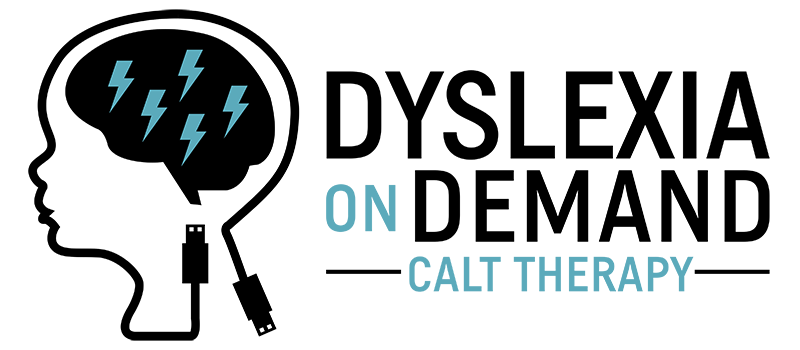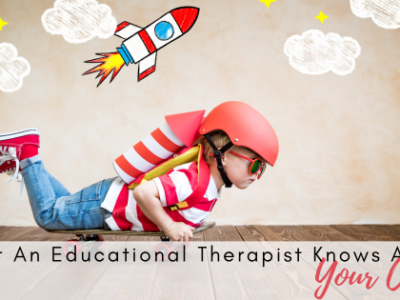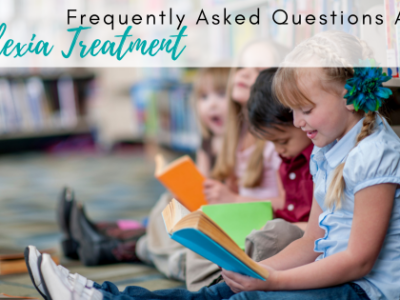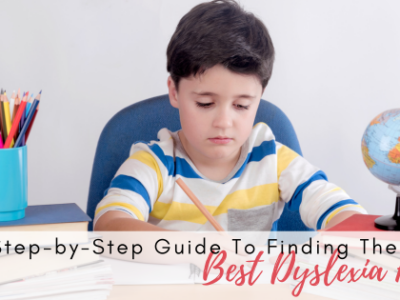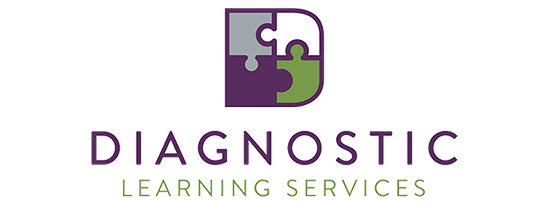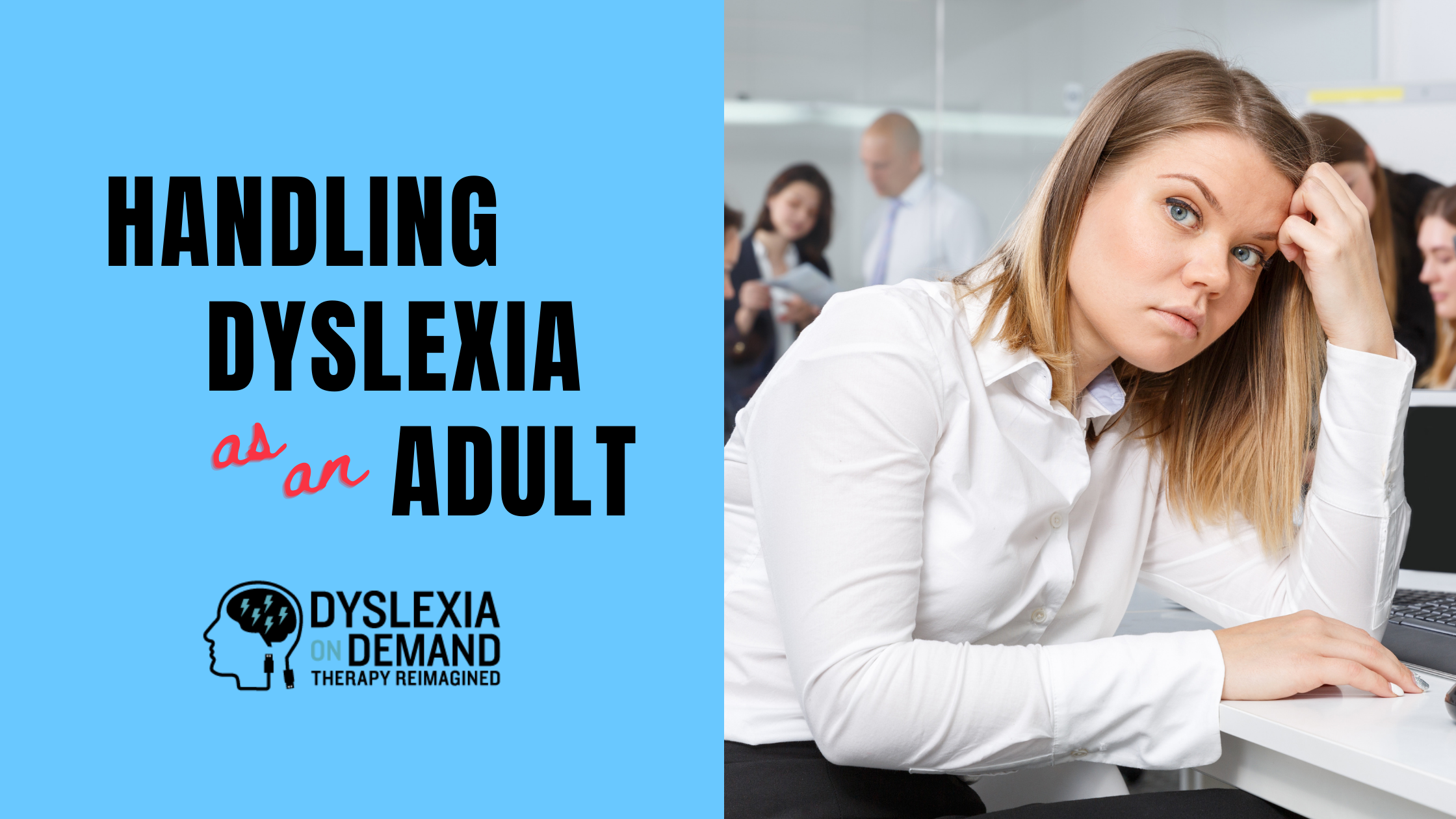
Handling Dyslexia as an Adult
Dyslexia as an Adult
At Dyslexia On Demand, we often hear from adults who want help with their dyslexia. Sometimes they’re looking for tips on living with dyslexia. Others need resources for adults with dyslexia. Many have never been formally diagnosed and want to know if they should be tested. Here we will explore all of these topics and more.
Dyslexia Discovered Late
Many adults discover they’ve had dyslexia their entire lives but didn’t know. Schools never tested them for learning differences. Instead, teachers labeled them as underachievers, lazy, and unintelligent. However, that couldn’t be further from the truth. Actually, adults and children with dyslexia are extremely intelligent. Their brains just work differently than someone without dyslexia.
Signs of Dyslexia in Adults
First, let’s look at some clues that an adult may have dyslexia. Some of the signs of dyslexia in adults include:
- Inconsistent and trouble spelling
- Difficulty or discomfort reading out loud
- Visual learner — likes graphs and charts, not lengthy reports
- Low self-esteem
- Trouble learning a foreign language
- Avoiding projects/tasks that include lots of reading
- Mispronouncing names and words
- Having difficulty focusing on one task
However, you have a right to accommodations. And you should use them! These accommodations help put you on a level playing field with your peers.
Should I Be Tested for Dyslexia?
Should you be tested for dyslexia if you suspect you have it? Absolutely! Your doctor will typically refer you to a licensed educational psychologist for testing. In addition, neurologists and other medical professionals may be qualified to provide a formal dyslexia diagnosis in an adult. Testing for dyslexia includes psychological, vision, hearing, and neurological tests.
As a starting point, the Dallas International Dyslexia Association has a simple self-assessment tool you can take.
Resources for Dyslexic Adults
There are many resources to help adults with dyslexia. Most states have a Protection and Advocacy Agency. For example, if you live in Texas, you can contact Disability Rights Texas. Their mission is to “help people with disabilities understand and exercise their rights under the law, ensuring their full and equal participation in society.”
You can also get help in the workplace from your local workforce commission. The Texas Workforce Commission, for instance, has a wealth of information devoted to programs for people with disabilities.
Finally, The Job Accommodations Network is a great general resource for workplace accommodations for adults with dyslexia in any state.
Tips for Dealing with Dyslexia as an Adult
So what else can you do? First, you can work with an occupational therapist or OT. An OT can help you learn how to work around and manage issues in the workplace and everyday life. Secondly, you can request verbal instructions instead of written. And, because people with dyslexia are generally visual learners, organize your notes using highlighters and color-coding. Try drafting a bullet point outline before you start a project. In addition, you can even find additional training for tasks that are outside of your comfort zone.
How Can Technology Help Adults with Dyslexia?
The good news is, with technology ever-evolving, adults with dyslexia have more resources than ever before. Some of the ways to use technology to your advantage include:
- talk to text
- recording meetings to listen back later
- organizational apps
- easy-to-read fonts
- optical readers that take a picture of text and read it back to you
Joining an online support group is also great if you can find one. Many social media platforms have these types of groups today.
Dyslexia Therapy for Adults
Unfortunately, adults with dyslexia are currently underserved. However, there are proven ways to help make your life easier! Dyslexia Therapy is an invaluable resource for anyone with dyslexia. It is intensive and time-consuming, making many adults unwilling to commit to it. But it works! And dyslexia therapy can help with neuroplasticity at all ages. At Dyslexia On Demand, our certified academic language therapists (or CALTs) use dyslexia therapy to support all learners – from 5 years old to adulthood.
Finally, take some time to check out Dyslexia On Demand and see how we can serve you. We always love feedback, so feel free to share your thoughts with us. Currently, we are considering offering support groups for adults with dyslexia. Please let us know if you’d be interested in joining one!
We look forward to helping you transcend the difficulties of dyslexia into realizing your full potential.
